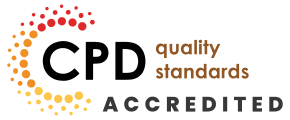
What is career choice? It is pivotal in every student’s life, as it sets the path for their future professional journey. The article sheds light on the myriad factors influencing students’ career choices. Teachers, parents, and kids have to understand these factors to make good decisions during this important process.

Academic Career Factor
Students who do well in school often have an edge over others. It is especially true in fields like medicine, engineering, law, and research, where academic success is a big part of getting in. For example, getting good grades in science classes is needed for a medical study or engineering job. A student can also look better by getting awards, scholarships, or joining prestigious programs. It makes them more appealing to top universities and possible employers. However, achieving such high academic standards is demanding. Thus, people often seek professional support to guarantee their success. Therefore, EduBirdie offers students essay writing services and top writers to maintain high academic performance. By leveraging such resources, young people can effectively manage their workload, ensuring they don’t miss out on opportunities in their desired career paths due to academic pressures.
Interests and Passions
When choosing a job, it’s impossible to say enough about how important personal interests and passions are. A student’s path to a satisfying job often starts with a hobby or subject that interests them. For instance, if you like computer games, you might be interested in making software or designing games. These are both artistic and technical jobs that work well together. A student who likes drawing or painting finds their true calling in building, graphic design, or the fine arts. Keeping the interests alive helps you do well in school and your job, making you happier and more engaged with your work.
Skills and Talents
It is true whether the skills are in art, critical thinking, social skills, or physical strength. They have a big impact on how a student’s job goes forward. Someone in school who is good at math and handling problems could enjoy a job in engineering, finance, or data science. People who are good at arts, and so, may be drawn to jobs in design, music, or the arts. It is important to see these skills early on and work on them. Schools and events outside of school are essential because they give kids chances to learn and improve at what they do. When teachers tell students to focus on what they’re good at, they do better at school and work and are usually happier with their jobs.
Peer Influence
When someone is seeking employment, their peers have a big impact, even if they are not aware of it. Peers are classmates, friends, or people in the same social group. You can get interested in jobs or fields of study by talking to your friends about them. It helps you decide what you want to do with your life. If someone in school hears how much fun and interesting things happen from a friend, they wish to work in this field.
A peer group’s collective values and trends also impact career choices. If you live in a place that values technology or entrepreneurship, kids are likelier to want to work in start-ups or IT. Teenagers also pick careers that are well-known or popular with their peers. They do so to fit in with their friends, even if such jobs don’t meet their skills or interests.
Job Market Trends
As the global economy evolves, certain sectors emerge as profitable or stable, attracting many students. Students have become more interested in technology, clean energy, and health care in the past few years. These businesses are in high demand and have room to grow. But, people may be less interested in those thought to be declining or oversaturated.
There’s more to picking a career based on trends than just making money. You want job security and a career path that will last in a world that is always changing. Students know that the skills in demand today might not be in demand tomorrow. Because of this, they try to choose fields with a lot of room for growth and development.
Economic Factors
Economic stability and the number of job openings in different fields are crucial. In a changing global market, students often pick careers that will pay well right away and keep them working for a long time. People who want a stable and successful career prefer to work in stable areas. Those are banking, technology, and healthcare. A student may need to support their family or reach certain financial goals. So pay is another important thing to think about. You want to work in a field that brings a lot of money. It means you can live a nice life, pay off your school loans, and save money for future goals.
Risk-averse students are not as interested in jobs in fields where the economy is unstable or where wages are low. Still, balancing economic factors, personal hobbies, and job satisfaction is essential. If you choose a job based on money concerns, you may be unhappy at work and burned out. Opportunities and economic stability play a part in job choices. But it’s also critical to match these with your hobbies and skills to find a career path you’ll enjoy for a long time.
Fear of Failure and Risk-Taking
Fear of failing and how people feel about taking risks greatly affect the jobs they pick. If a student is afraid of failure, they might pick jobs that seem “safer” or more traditional, where everyone knows how to succeed. People who don’t like taking risks tend to be drawn to fields with a clear career ladder, safe job markets, and less volatility. On the other hand, students willing to take risks and not give up can be pushed toward more unusual but rewarding careers.
People like this are interested in starting their businesses, working in creative fields, or entering new areas where success is less certain. Still, there is much room for growth and a lot of money to be made. The contrast between being afraid and being brave when choosing a job shows how psychological factors impact career choices. Being afraid of risk gives you stability and predictability. However, taking risks opens up new career paths and unique chances. Finding the right balance between these things is important, and students do better if they know how much risk and loss they are willing to take. Being self-aware helps them choose careers that are not only in line with their goals, but also with their ability to handle and do well in risky situations.
Conclusion
The importance of career choice to students is a multifaceted and intricate process, influenced by myriad factors that intertwine personal aspirations, societal expectations, and economic realities. As we have explored, personal interests and passions often lay the foundation for this journey, guiding students towards fields where they can utilize their inherent skills and talents. Ultimately, the goal is to foster a decision-making process that is reflective, informed, and balanced, paving the way for a career that is both rewarding and sustainable.










